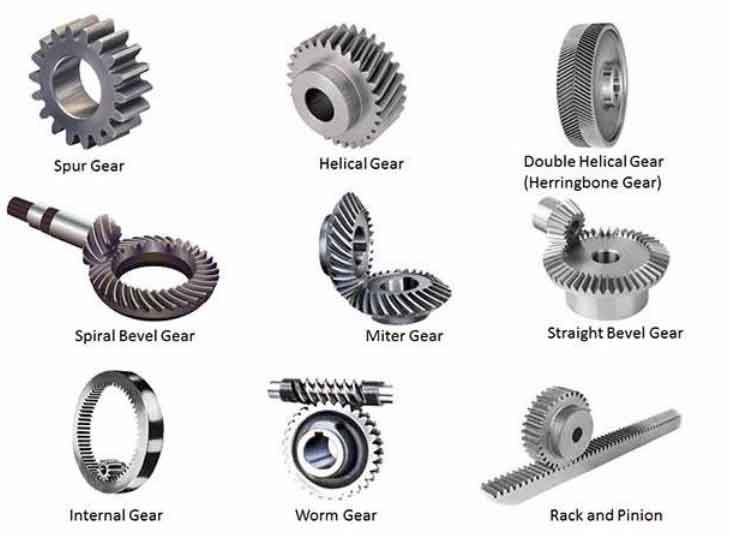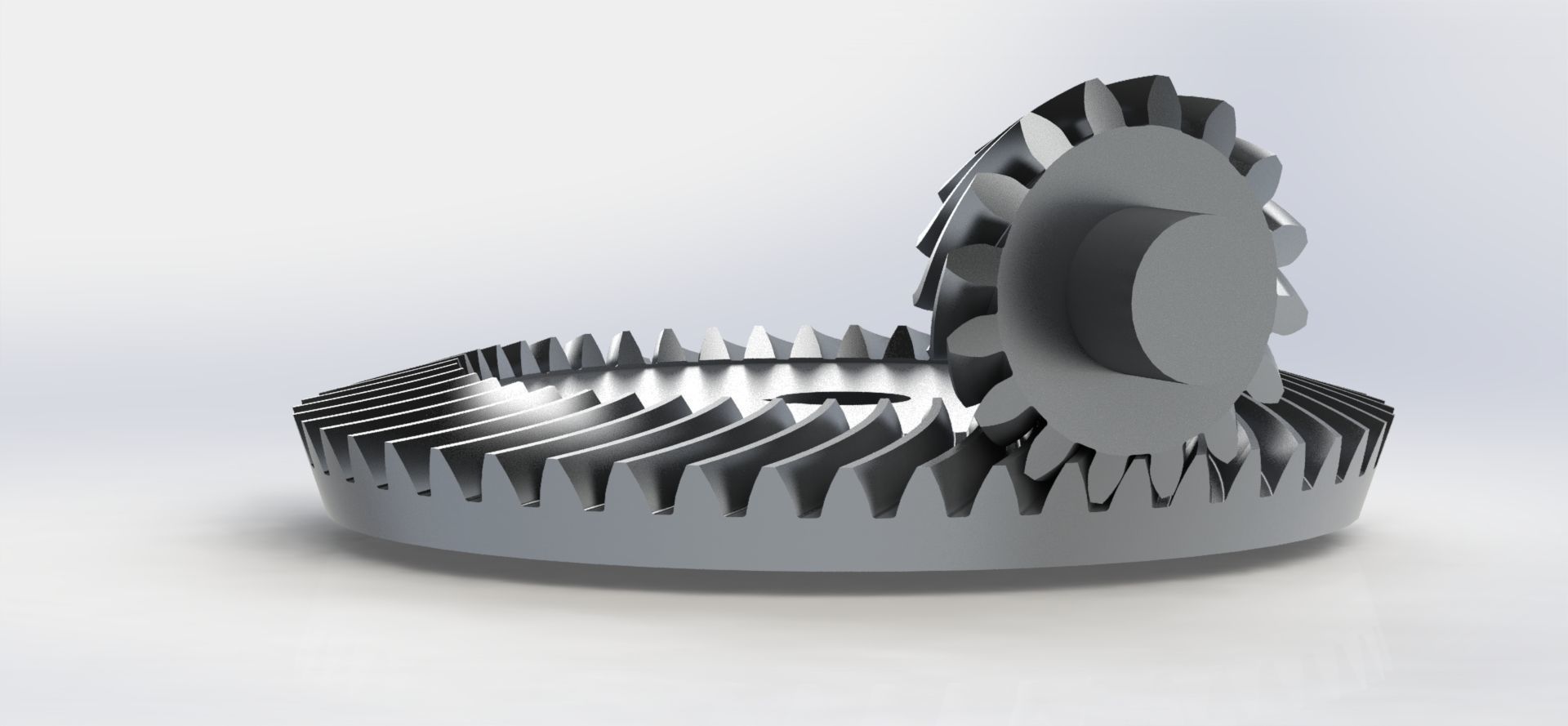Product Description
Customer High Precision Manufacturer Steel /Pinion/Straight/Helical Spur
Planetary/Transmission/Starter/ CNC machining/Drive Gear
Our advantage:
*Specialization in CNC formulations of high precision and quality
*Independent quality control department
*Control plan and process flow sheet for each batch
*Quality control in all whole production
*Meeting demands even for very small quantities or single units
*Short delivery times
*Online orders and production progress monitoring
*Excellent price-quality ratio
*Absolute confidentiality
*Various materials (stainless steel, iron, brass, aluminum, titanium, special steels, industrial plastics)
*Manufacturing of complex components of 1 – 1000mm.
Production machine:
| Specification | Material | Hardness |
| Z13 | Steel | HRC35-40 |
| Z16 | Steel | HRC35-40 |
| Z18 | Steel | HRC35-40 |
| Z20 | Steel | HRC35-40 |
| Z26 | Steel | HRC35-40 |
| Z28 | Steel | HRC35-40 |
| Custom dimensions according to drawings | Steel | HRC35-40 |
Production machine:
Inspection equipment :
Gear tester
| Application: | Motor, Electric Cars, Motorcycle, Machinery, Agricultural Machinery, Car |
|---|---|
| Hardness: | Hardened Tooth Surface |
| Gear Position: | Internal Gear |
| Manufacturing Method: | Rolling Gear |
| Toothed Portion Shape: | Spur Gear |
| Material: | Steel |
| Customization: |
Available
| Customized Request |
|---|

What is the role of spiral bevel gears in drivetrain systems?
Spiral bevel gears play a crucial role in drivetrain systems, contributing to power transmission, torque redirection, and overall performance. Here’s an overview of the role of spiral bevel gears in drivetrain systems:
- Torque Transfer: Spiral bevel gears are responsible for transmitting torque between the engine and the drivetrain components. They are commonly used in vehicle differentials and transfer cases to distribute torque to the wheels or other output shafts. Their precise tooth meshing ensures efficient power transfer, allowing the vehicle to move and effectively utilize engine power.
- Torque Redirection: In drivetrain systems, spiral bevel gears are utilized to redirect torque and change the direction of power flow. For example, in rear-wheel drive vehicles, the spiral bevel gears in the differential redirect torque from the driveshaft to the rear wheels, enabling the vehicle to turn smoothly. Similarly, in four-wheel drive or all-wheel drive systems, spiral bevel gears in the transfer case redirect torque between the front and rear axles, providing traction and improved handling on various terrains.
- Gear Ratio Selection: Spiral bevel gears can be designed with different gear ratios to optimize vehicle performance. By choosing appropriate gear ratios, drivetrain systems can provide the desired balance between torque, speed, and efficiency. Spiral bevel gears allow for a wide range of gear ratio options, enabling manufacturers to tailor the drivetrain system to specific vehicle types and applications.
- Noise and Vibration Control: Spiral bevel gears are designed to minimize noise and vibrations in drivetrain systems. The helical tooth profile of spiral bevel gears allows for smoother tooth engagement, reducing gear meshing noise and vibration levels. This enhances driving comfort and reduces wear and tear on the drivetrain components.
- Compact Design: Spiral bevel gears offer a compact and space-efficient design, making them suitable for integration into drivetrain systems with limited space. Their compactness allows for efficient power transfer while optimizing the packaging of the drivetrain components within the vehicle chassis.
- Durability and Reliability: Drivetrain systems are subjected to demanding operating conditions, and spiral bevel gears are designed to withstand these challenges. They are engineered to provide durability and reliable performance under high loads, ensuring the drivetrain system’s longevity and minimizing the need for frequent maintenance.
Overall, spiral bevel gears play a vital role in drivetrain systems by enabling torque transfer, torque redirection, gear ratio selection, noise control, compact design, and ensuring durability. Their precise and efficient operation contributes to the performance, efficiency, and reliability of various vehicles, ranging from passenger cars to heavy-duty trucks and off-road vehicles.

Can spiral gears be used in precision machinery and equipment?
Yes, spiral gears can be used in precision machinery and equipment with excellent results. They offer several advantages that make them well-suited for such applications. Here’s why spiral gears are suitable for precision machinery and equipment:
- Smooth Operation: Spiral gears provide smooth and precise gear operation. The helical tooth arrangement ensures gradual tooth engagement, resulting in reduced impact, vibration, and noise. This smooth operation is crucial in precision machinery where precise movements and low noise levels are required.
- High Load Capacity: Spiral gears have a high load-carrying capacity, allowing them to handle heavy loads encountered in precision machinery. The helical tooth profile distributes the load across multiple teeth, reducing stress concentration. This feature enables spiral gears to transmit torque efficiently and withstand the forces associated with precision applications.
- Efficient Power Transmission: Spiral gears offer efficient power transmission, minimizing energy losses and optimizing overall system efficiency. The helical tooth profile reduces sliding friction, resulting in improved power transmission efficiency. This efficiency is particularly important in precision machinery where energy conservation and high performance are critical.
- Reduced Noise and Vibration: Spiral gears exhibit reduced noise and vibration due to their gradual tooth engagement and improved contact pattern. This feature is highly desirable in precision machinery, where noise reduction is essential for maintaining a quiet working environment and ensuring accurate operation.
- Axial Thrust Compensation: Spiral gears can be designed with opposite helix angles on mating gears to cancel out axial thrust. This axial thrust compensation simplifies gear design and reduces the need for additional components such as thrust bearings. It is particularly advantageous in precision machinery, where precise axial movement and minimal axial forces are desired.
- Reliability and Durability: Spiral gears are known for their reliability and durability. The gradual tooth engagement, load distribution, and reduced friction contribute to their long-term performance under demanding conditions. Precision machinery requires gears that can withstand continuous use and maintain high precision over time, making spiral gears a suitable choice.
Considering their smooth operation, high load capacity, efficient power transmission, noise reduction, axial thrust compensation, reliability, and durability, spiral gears are well-suited for precision machinery and equipment. They can contribute to the overall performance, accuracy, and longevity of precision systems.

What are spiral gears and how are they used in machinery?
Spiral gears are a type of cylindrical gears with teeth that are curved in a spiral pattern. Unlike straight-cut gears, which have teeth that are parallel to the gear axis, spiral gears have teeth that are angled or helical. This helical tooth arrangement provides several advantages in terms of performance and noise reduction.
Spiral gears are commonly used in machinery for various applications due to the following reasons:
- Smooth and Quiet Operation: The helical tooth arrangement of spiral gears enables gradual tooth engagement, resulting in smoother and quieter operation compared to straight-cut gears. The angled teeth allow for gradual contact, reducing noise and vibration during gear meshing.
- Increased Load Capacity: The helical tooth design of spiral gears distributes the load over multiple teeth, increasing the load-carrying capacity. This makes spiral gears suitable for applications that require high torque transmission and heavy-duty operations.
- Improved Efficiency: The helical tooth arrangement of spiral gears helps in minimizing sliding friction between the teeth. This results in a higher level of efficiency compared to straight-cut gears, as there is reduced power loss due to friction during gear operation.
- Axial Thrust Compensation: Spiral gears can be designed with opposite helix angles on mating gears, which helps in canceling out the axial thrust generated during gear meshing. This feature eliminates the need for additional thrust bearings, simplifying the gear design and reducing complexity.
- Versatility: Spiral gears can be manufactured in various configurations, including spur, helical, and double helical designs. This versatility allows for their application in a wide range of machinery, including automotive systems, industrial equipment, and power transmission systems.
In machinery, spiral gears are commonly used in applications that require smooth operation, high load capacity, and efficient power transmission. Some examples include gearboxes, automotive differentials, machine tools, and heavy-duty industrial machinery.
Overall, the unique tooth geometry of spiral gears makes them a preferred choice in many machinery applications, offering improved performance, reduced noise, and enhanced load-carrying capabilities.


editor by CX 2023-10-24